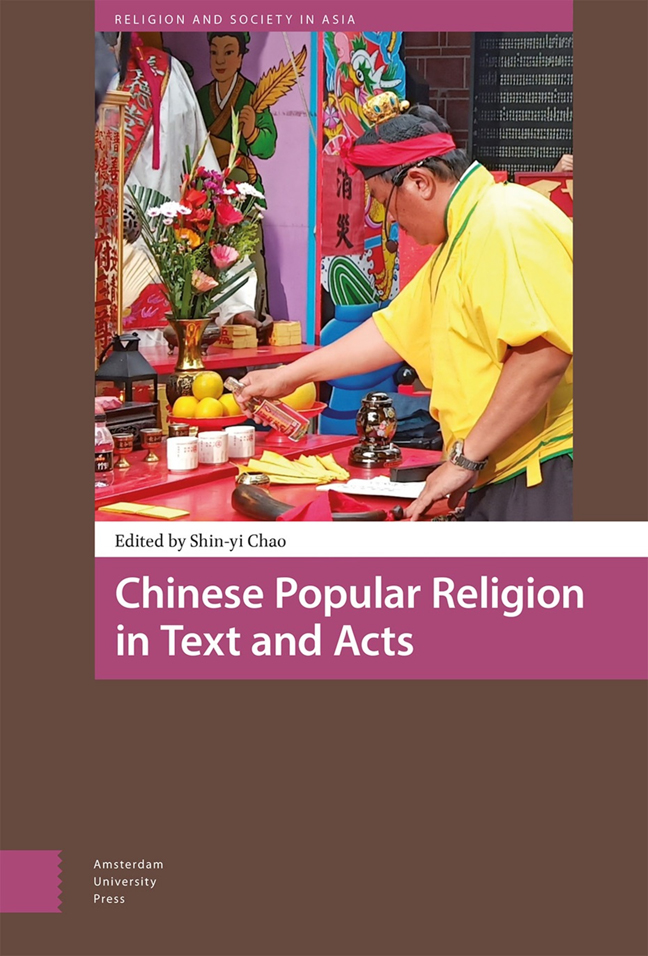Book contents
- Frontmatter
- Contents
- List of Figures and Tables
- Acknowledgements
- Dedication
- Introduction: Text, Acts, and Traditionalization: Performing Chinese Popular Religion
- Section One Texts And Acts
- Section Two Scriptures and Rituals
- Section Three Saints’ Legends and Gods’ Lore
- Section Four Temple Festivals and Pilgrimages
- Index
Introduction: Text, Acts, and Traditionalization: Performing Chinese Popular Religion
Published online by Cambridge University Press: 26 March 2024
- Frontmatter
- Contents
- List of Figures and Tables
- Acknowledgements
- Dedication
- Introduction: Text, Acts, and Traditionalization: Performing Chinese Popular Religion
- Section One Texts And Acts
- Section Two Scriptures and Rituals
- Section Three Saints’ Legends and Gods’ Lore
- Section Four Temple Festivals and Pilgrimages
- Index
Summary
This volume explores Chinese popular religion practiced among people across social strata from the late medieval to present times. As a creative cultural expression, popular religion—ranging from village-centered local practices to countrywide movements—has been a major confluence of social groups in the long durée of Chinese tradition. Events like life-rhythm ceremonies, including mortuary events, calendrical festivals (ghost festivals, for example), temple fairs, and pilgrimages all involve participation of the clergy, the laity, the elite, the commoners, the government, and the governed. The discussions also draw in institutional religion, since popular religion, as the chapters will amply show, has been in constant discourse with the ideological structure imposed from the top.
Popular religion surely has its autonomy, but it does not live in a sanitized vacuum free from impacts of the state and the clergy. Common people have had access, however indirect, to the reservoir of symbols of the three “great teachings” (Daoism, Buddhism, and Confucianism) and have taken inspiration from the tenets and practices generated or refined by so-called high culture. Folk tales, for example, recruit canonic Buddhist, Daoist, and Confucian figures as miracle workers who grant this-worldly rewards. Beneath the pragmatic pursuit of happiness that characterizes popular religion lays the narrative constructed by concepts of karma, samsara, immortality, bureaucratic hierarchy, albeit with alterations fitting the worldview of the common folk. The learned clergy and scholar-officials often rebuff the folk renditions of institutional religious doctrines and liturgies as distortive. Such criticism, nevertheless, effectively betrays the autonomy and potency of popular religion. Omitting institutional religion when studying popular religion, ironically, risks an inadequate assessment of the creativity of popular religion in appropriation.
“There are Daoist, Buddhist and government influences,” Daniel Overmyer has pointed out, “but they must be adapted to the needs of local communities.” If we were ever under the impression that the state and the clergy were in control of shaping the Chinese religious landscape, that is largely because the materials produced by the state and the elite are too readily accepted as reality instead of wishful thinking. The attempts by the state to regulate popular religion through bans, laws, and the like—are too often taken to have been successful. Once researchers place their attention on texts produced or employed by common folk, as the contributors have done, the ascendancy of people in their own religious matters becomes clear.
- Type
- Chapter
- Information
- Chinese Popular Religion in Text and Acts , pp. 11 - 40Publisher: Amsterdam University PressPrint publication year: 2023



